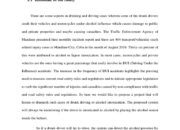The modern epoch, characterized by rapid scientific advancements and the unceasing proliferation of knowledge, underscores a paramount phenomenon: the collaboration of scientists across national borders. This phenomenon, often termed “Science Without Borders,” encapsulates not only the mobilization of intellectual resources but also a profound recognition of the interconnectedness of global challenges. The quest for scientific knowledge has transcended geographical limitations, fostering an environment where interdisciplinary collaboration emerges as a crucial component of innovation.
The impetus for global cooperation in science springs from the multifaceted challenges that confront humanity, such as climate change, pandemics, and the sustainability of ecosystems. These issues are transcendent in nature, evading the constraints imposed by sovereign boundaries. The COVID-19 pandemic is a salient exemplar, illustrating the imperative for collaborative research and information exchange. Scientists from diverse cultural backgrounds aggregated their expertise to elucidate the virus’s structure and develop vaccines at an unprecedented pace. This collective endeavor epitomizes a shared commitment to the betterment of human welfare, instigating a broader discourse on the significance of cross-border scientific initiatives.
Nevertheless, the allure of collaboration in science transcends mere pragmatism. A subtle, yet profound fascination undergirds this phenomenon—the notion that knowledge, in its most sublime form, is a universal currency. The act of sharing scientific insights cultivates a culture of mutual respect and intellectual curiosity. It breaks down barriers of isolation and fosters a sense of belonging to a larger community dedicated to unraveling the mysteries of the universe. Scientists collaborating across borders engage not only in exchanging data but also in weaving a rich tapestry of diverse perspectives that enhance the depth and breadth of inquiry.
The emergence of global initiatives, such as the Human Genome Project and the International Space Station, exemplifies the transformative potential inherent in collaborative efforts. The Human Genome Project was a monumental undertaking that involved scientists worldwide, aligning their methodologies and ethical considerations to decode the complexities of human DNA. This collaboration has not only yielded significant biomedicine advancements but has also galvanized international discourse on ethical issues concerning genetic information. Such initiatives transcend individual aspirations, spotlighting the ethos of collective endeavor in the pursuit of knowledge.
Moreover, collaborative scientific endeavors foster a rich educational milieu. When scholars from disparate regions converge, they transcend their local contexts, bringing unique methodologies and epistemological frameworks into dialogue. This cross-pollination of ideas engenders innovative solutions that might have remained dormant within isolated academic silos. It is not merely the sharing of knowledge that is transformative, but the diversification of thought processes that leads to unprecedented breakthroughs. The amalgamation of contrasting viewpoints fosters an environment conducive to creativity, enabling the scientific community to tackle multifarious challenges with greater efficacy.
Furthermore, the implementation of digital technologies has revolutionized the landscape of international scientific collaboration. Virtual platforms facilitate instantaneous communication, allowing researchers to share their findings and methodologies in real time, regardless of their location on the globe. Online journals and collaborative research tools have democratized access to information, enabling even the most remote scientists to partake in the global discourse. Therein lies the beauty of modern science—the dissolution of traditional barriers, paving the way for a more inclusive scientific community.
However, the journey towards unimpeded collaboration is fraught with challenges. Cultural variances, funding disparities, and bureaucratic impediments can hinder effective cooperation. Nationalistic tendencies may exacerbate these issues, leading to compartmentalization of scientific inquiry. Historical animosities and geopolitical tensions can also obstruct collaborative efforts, underscoring the necessity for sustained dialogue and mutual understanding among nations. It is imperative that the global scientific community remains vigilant against such pitfalls, championing the ethos of collaboration irrespective of political affiliations.
In addition to addressing logistical and sociocultural barriers, the ethical dimensions of collaboration warrant careful scrutiny. As science transcends borders, ethical considerations surrounding research practices, data sharing, and the implications of scientific advances become paramount. The historical misappropriation of scientific knowledge from marginalized communities exemplifies the need for ethical vigilance. Collaborative frameworks should aspire to be inclusive and equitable, ensuring that the benefits of scientific progress extend to all, particularly to those who have historically been excluded from the scientific endeavor.
In conclusion, the global venture of scientific collaboration embodies a remarkable synthesis of aspiration, innovation, and ethical responsibility. It is a testament to humanity’s unwavering quest for knowledge and understanding, transcending the limitations imposed by geography, culture, and politics. Through collaborative efforts, the scientific community not only addresses the complexities of modern challenges but also cultivates a shared narrative that enriches the fabric of global society. The future of science lies in this interconnectedness, urging us to embrace a collective identity as custodians of knowledge in a world that is both intricately connected and inherently diverse.












